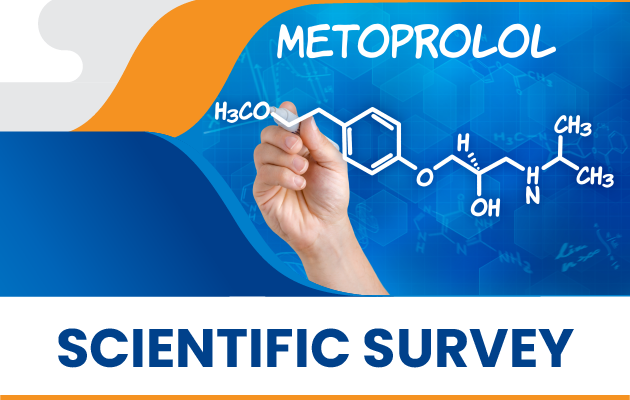
Scientific Survey

Most hypertensive patients do not reach their target, ideal risk-lowering blood pressure, even though treating high blood pressure (BP) is recognized to be crucial in preventing cardiovascular consequences like stroke and myocardial infarction. Beta-blockers are a class of medications that are commonly used in the management of hypertension, of which Metoprolol is frequently prescribed beta-blocker for hypertension. It works by selectively blocking the beta-1 receptors in the heart, which decreases the heart rate and force of contraction. This leads to a decrease in cardiac output and blood pressure. Metoprolol has several advantages in the treatment of hypertension, including its ability to reduce blood pressure effectively, its relatively low risk of adverse effects, and its usefulness in treating other medical conditions such as angina, heart failure, and arrhythmias. Moreover, it has also demonstrated effectiveness in lowering cardiovascular events and mortality in hypertensive patients with coronary heart diseases. The survey aims to evaluate metoprolol’s effectiveness in reducing BP as well improving cardiovascular outcomes as well as establishing its safety across different patient groups.
Survey objectives:
1. To evaluate beta blockers’ role, rationale, dose monitoring, and titration in hypertensive patients
2. To evaluate beta blockers safety in different patient groups
3. To understand the potential clinical benefits of metoprolol over other beta blockers
4. To understand the patient profile for appropriate prescribing of metoprolol in hypertensive patients for better patient outcomes.
Target audience:
PG students- Cardiology